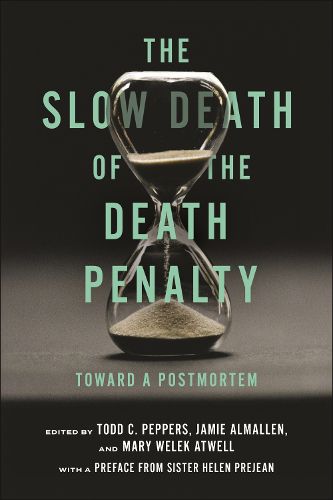Readings Newsletter
Become a Readings Member to make your shopping experience even easier.
Sign in or sign up for free!
You’re not far away from qualifying for FREE standard shipping within Australia
You’ve qualified for FREE standard shipping within Australia
The cart is loading…






Why the death penalty is in decline across the United States
Across the country, the death penalty is dying. Twenty-two states have abandoned state-sanctioned executions, including nine in the last fifteen years. Of the twenty-eight states that still have the death penalty, eight have not had an execution in over a decade. And public support for the death penalty has declined from 80% of the surveyed population in the early 1990s to approximately 50% today.
As the death penalty slowly withers away, Todd C. Peppers, Jamie Almallen, and Mary Welek Atwell bring together a number of distinguished death-penalty scholars, activists, and attorneys to take an accounting of the damage inflicted by the machinery of death. Contributors to the book point to a range of different pathologies which have caused politicians and voters to turn against capital punishment, from unacceptable rates of false convictions and racially motivated prosecutions, to a clemency process poisoned by political factors.
Essay topics include various dimensions of the death penalty, including racial and gender bias; economic costs; the conviction of juveniles, the mentally ill, and the factually innocent; Supreme Court decisions; and the failure of the death penalty to serve as a deterrent against crime. This important volume is an up-to-date accounting of the current state and, as the contributors argue, the future demise of the death penalty.
$9.00 standard shipping within Australia
FREE standard shipping within Australia for orders over $100.00
Express & International shipping calculated at checkout
Why the death penalty is in decline across the United States
Across the country, the death penalty is dying. Twenty-two states have abandoned state-sanctioned executions, including nine in the last fifteen years. Of the twenty-eight states that still have the death penalty, eight have not had an execution in over a decade. And public support for the death penalty has declined from 80% of the surveyed population in the early 1990s to approximately 50% today.
As the death penalty slowly withers away, Todd C. Peppers, Jamie Almallen, and Mary Welek Atwell bring together a number of distinguished death-penalty scholars, activists, and attorneys to take an accounting of the damage inflicted by the machinery of death. Contributors to the book point to a range of different pathologies which have caused politicians and voters to turn against capital punishment, from unacceptable rates of false convictions and racially motivated prosecutions, to a clemency process poisoned by political factors.
Essay topics include various dimensions of the death penalty, including racial and gender bias; economic costs; the conviction of juveniles, the mentally ill, and the factually innocent; Supreme Court decisions; and the failure of the death penalty to serve as a deterrent against crime. This important volume is an up-to-date accounting of the current state and, as the contributors argue, the future demise of the death penalty.